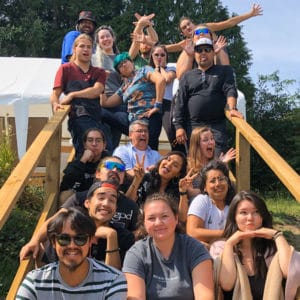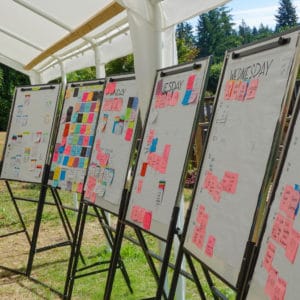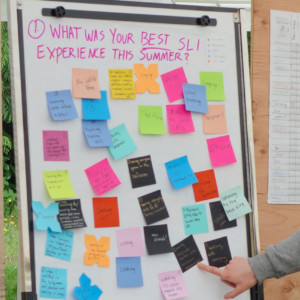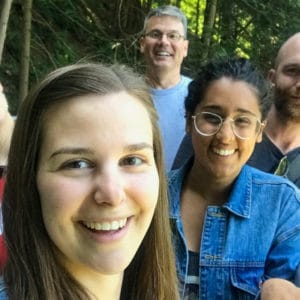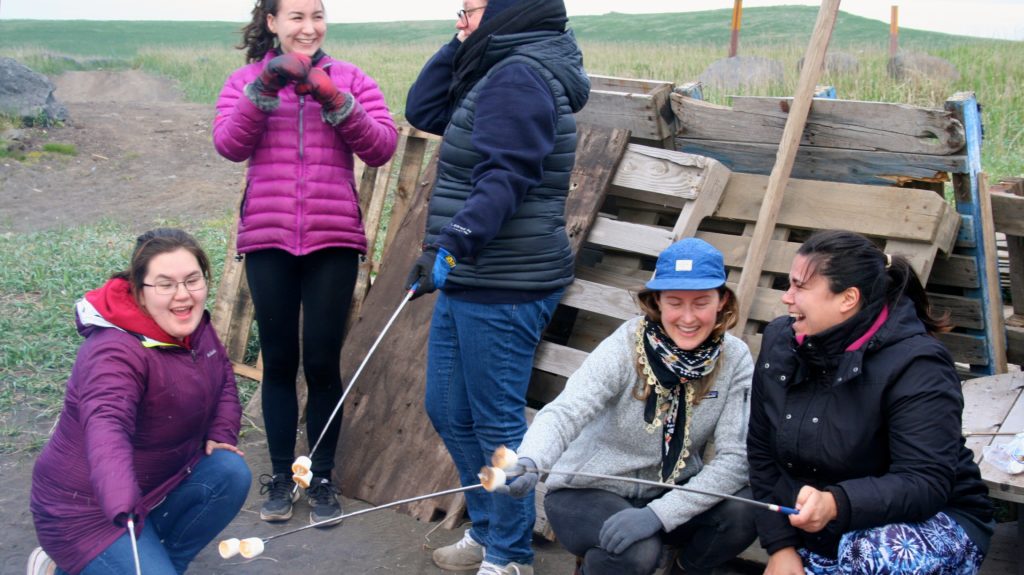
I joined WAYK for the 2017 Summer Language Intensive on St. Paul Island, Alaska, because I wanted to learn more about the techniques involved and to learn more about approaches to Indigenous language revitalization. Visiting a remote island in the Bering Sea and its flora and fauna was a wonderful perk, too. After the summer came to an end, here are the things that stood out to me. They are of course personal and subjective.
- You have a hard time explaining what you are doing. Even my mother and my best friend are still a bit confused about what exactly I did every day. Was I here to learn Unangam Tunuu? Not exactly. Was I here to train teachers? Not exactly. WAYK interns play a few roles, including guinea pigs for the local team to practice teaching, language “hunters” to push the local team to recognize and develop their own fluency, and general supporters, doing anything from making coffee to helping make the daily schedule.
- You are exposed to new resources, perspectives, and methods. Aquilina Lestenkof, leader of the local language team, loaned me the book Stop Talking: Indigenous Ways of Teaching and Learning, which introduced and reinforced new ways of being in a classroom. Fellow intern Talia drew my attention to the unique capacities of young people, who happen to be at the heart of the local teaching team. Fellow intern Myles introduced me to the Rassias Method, which I had never heard of. These are just a few examples of how simply being an intern positioned me to be in the flow of new ideas.
- You consider which WAYK techniques and tools you will take away, and how you will use them. Knowing that my next project would be with language exchange partners, I have thought a lot about which techniques are best to offer (e.g. TQ: Again, TQ: Set Up, TQ: Accent Adjustment) and which are unnecessary (e.g. TQ: Focus, TQ: Get Out). Similarly, I have thought about tools that I like in concept, such as the calendar wall and the fluency freeway grid, and how I will adapt them for my own purposes.
- You are reminded again and again that language revitalization work is much broader than just language teaching and learning. One surprise to me was the high degree of overlap between the revitalization work on St. Paul and the community organizing work I have done in British Columbia. I felt I had been taking a break from language education work in the last three years, but it seems that many of the skills I’ve been learning are actually very applicable. These include identifying, recruiting, and developing leaders, establishing shared goals, choosing tactics and applying them over a timeline, developing effective teams, and coaching. In short, I am more aware that language revitalization requires the commitment of diverse people within a community and their ability to work together, so facilitating that is just as important as good language teaching techniques.
- You are reminded of the importance of patience and bouncing back. For better and worse, being a WAYK intern, at least in the current model, means living and working with the same group of people pretty much 24/7, especially if you have a roommate, as I did. I liked many aspects of
the communal life, including great meals prepared three times a day and having running and gym companions. I was also challenged by being surrounded by people constantly and the inevitable blending of work and home life. This underscored for me the importance of patience, and of bouncing back if I did get frustrated. Fortunately, there were beautiful, sunny days for walking, hiking, and birding, and those always helped me unwind and keep perspective.
I am sure every intern will have a different experience. Hopefully these reflections of mine will help paint one perspective.
Post authored by Mary.

